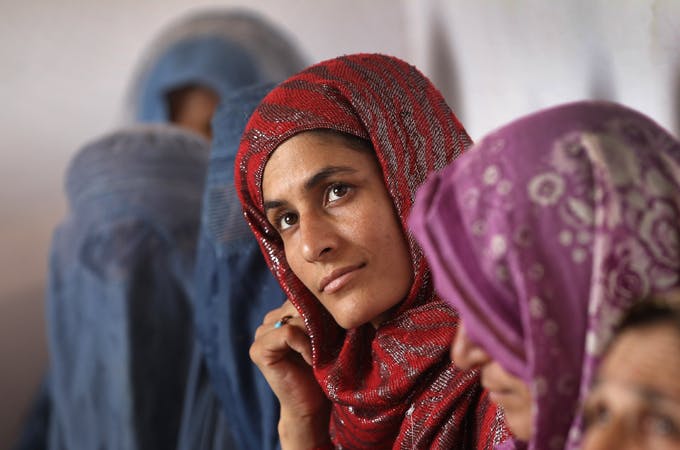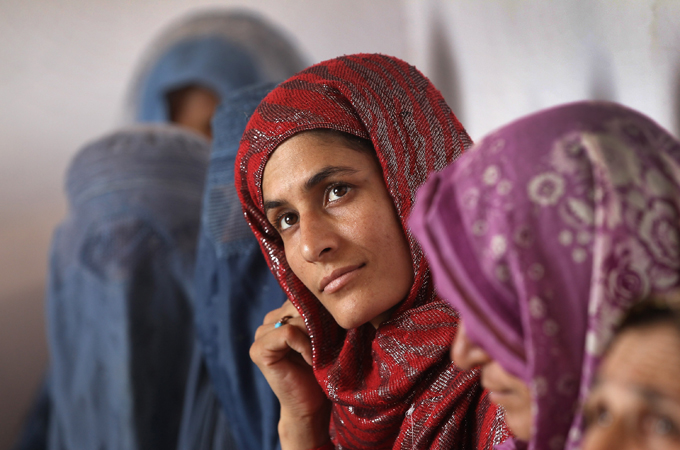Culture Is No Excuse for Abuse
Jan 21, 2015
First story


With stories like those of Malala Yousafzai, the Pakistani schoolgirl who survived a murder attempt by the Taliban, penetrating the news, it would be easy – but actually wrong – to think that the women’s equality and human rights movement is steadily marching forward. In fact, equality for women in the Middle East was quietly dealt one of its largest setbacks in decades last week. With a simple change to the criminal code, the Afghan parliament effectively sanctioned a family’s ability to attack – or more specifically whip, chain, slice off the nose or murder a daughter – in the name of “honor.” Families (fathers, mothers, uncles or brothers) who engage in these attacks will face no consequences of judicial punishment. Moreover, the new law makes it illegal for a relative of an accused person to testify against them.
The extent of so-called “honor violence” around the world is staggering. The United Nations estimates that at least 125 million women and girls have suffered female genital mutilation (FGM) in Africa and the Middle East since 1989. The United Nations Population Fund has found that more than 60 million girls worldwide are child brides.
But what does this mean for those of us in the Western world? Much more than meets the eye. Groups like the Tahirih Justice Center estimate that at least 1,500 forced marriages take place each year in the United States. The U.S. Centers for Disease Control and Prevention believes 150,000 to 200,000 American girls are at risk of FGM. And the BBC has found that there are approximately 3,000 honor attacks in the United Kingdom every year.
To be clear, while honor killings frequently take place in Muslim cultures, Islam does not – nor does any major world religion – sanction this violence. And culture is not an excuse for abuse or inaction.
Perhaps the more important question is: what can we do about it? The most powerful tool we have is to put a face on the issue – like Malala and others have done. In a groundbreaking move, nine women – I am one of them – will speak out on film about the atrocities of honor violence. We’re working to build a national helpline for victims of honor violence and other abuse in the United States, and we are asking people everywhere to raise their voices against these heinous practices.
The U.S. government has a role to play as well. President Obama could urge President Karzai not to sign the legislation passed by Afghanistan’s parliament. Our lawmakers have the opportunity later this year to pass the International Violence Against Women Act – a bill that uses the power of U.S. foreign policy to support efforts to prevent women from becoming victims of abuse, supports intervention services such as healthcare for women who have contracted HIV/AIDS as a result of being raped, and offers training and assistance to other countries and NGOs battling this problem. These are small but important steps in tackling an entrenched societal problem.
Fifty years ago, Martin Luther King Jr. eloquently argued that “Injustice anywhere is a threat to justice everywhere.” When women and girls suffer in silence – whether in St. Louis, MO, or a small village in Pakistan – it is a tragedy. When those of us with the power to do something about it fail to speak up, we become complicit in the problem.
if we care about the advancement of women in the world, we must equally concerned – in fact we should be outraged – about the pervasiveness of honor violence toward women today.
As a woman and an activist, I chose to participate in Honor Diaries, the first film to break the silence on so-called “honor violence” against women and girls. It examines this troubling issue through the perspectives of nine diverse women, who like me, have dedicated our lives to eradicating this practice in countries across the Middle East and Africa – as well as in the United States, Canada and the U.K.
Systemic and culturally based abuses against women and girls must end. Forced marriage, child marriage, female genital mutilation, and honor attacks and killings have no place in 21st century society.
Photo Credit: Aljazeera.com




